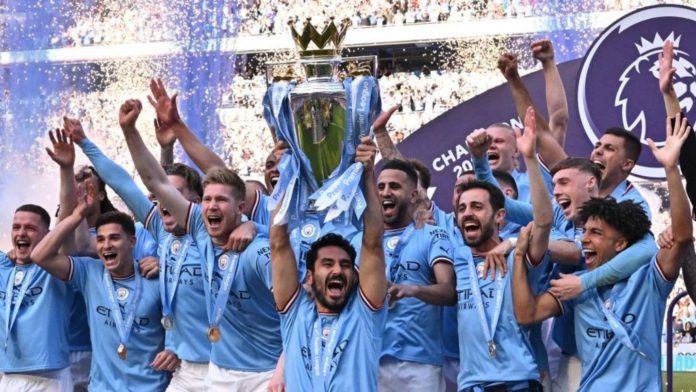Premier League clubs have voted in favour of developing plans to introduce a spending cap.
A majority of clubs voted in favour of the Premier League doing the final economic and legal analysis needed to create a spending cap model.
The model could be presented to clubs at June’s AGM and – should clubs vote in favour then – it will replace the Profit and Sustainability Rules currently in place, from the 2025-26 season onwards.
Manchester United, Manchester City and Aston Villa voted against the possible introduction of a spending cap on Monday, while Chelsea abstained.
The league’s current financial rules, which have seen Everton and Nottingham Forest penalised eight and four points respectively this season, have been criticised for favouring clubs with the highest revenue.
What are the current rules?
The Premier League’s Profit and Sustainability Rules permit clubs to lose £105m over a three-season period.
The Premier League says the current regulations are designed to try to ensure the long-term financial sustainability of clubs and maintain the competitive nature of the league by preventing “unfair advantages”.
What is the background?
In February, the Premier League was warned that a failure to reach a funding deal with the English Football League would mean an agreement being imposed on it by a new football regulator being created by the government.
The following month, the Premier League and the EFL failed to settle on a funding deal.
Instead, the Premier League said that the clubs in the top flight had agreed to introduce a new, competition-wide financial system to replace the Profit and Sustainability Rules.
What is Uefa’s Financial Fair Play model?
When the idea of moving away from the Profit and Sustainability Rules was first discussed, it had been anticipated that Premier League clubs would move towards a model adopted by Uefa.
Under Uefa rules, clubs can spend no more than 90% of their revenue on squad costs. This will reduce to 70% from the 2025-26 season.
This means the amount they can splash out is limited by the amount of cash they generate.
Why do some clubs oppose the plans?
Some clubs oppose the idea of a spending cap because they feel it threatens to penalise clubs with large revenues, which – they argue – have been built by sporting achievement and commercial innovation.
Others say that levelling out competition in the Premier League threatens to undermine the global standing of the league itself, as it could put English top-flight clubs at a disadvantage against their European counterparts.
What happens next?
The Premier League will now develop a spending cap model.
The vote on Monday only concerned the development of a model, not the introduction of one.
Premier League clubs will meet again at June’s AGM, when they could be presented with the Premier League’s analysis and model.
Discussions will then take place on the model, before a possible vote.

